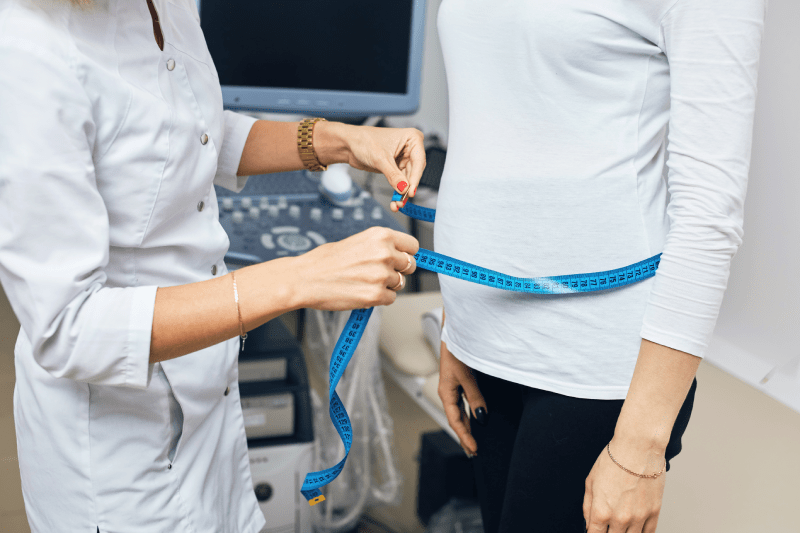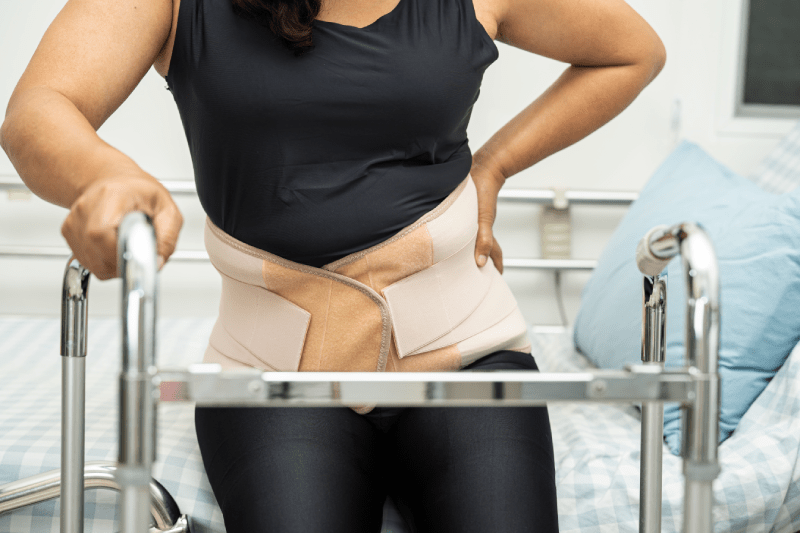Why Is Gastric Sleeve Surgery Considered Safe In Turkey?
The most fundamental reason why gastric sleeve surgery is considered safe in Turkey is that surgical procedures are conducted according to internationally recognized protocols. Many large private hospitals are accredited by independent organizations like JCI (Joint Commission International), which demonstrates that the facilities adhere to the highest global standards for patient safety and quality management. Furthermore, the deep experience of Turkish surgeons in this field, with high case volumes, and their skills in complication management, raise the overall success rates, making Turkey a reliable center.
What Are The International Accreditations Of Hospitals?
International accreditations of hospitals are the most important documents proving the quality of the medical service provided. Many leading hospitals in Turkey, in particular, hold JCI (Joint Commission International) accreditation. This certificate confirms that the hospital meets over 1300 measurable standards, from infection control to anesthesia management, from emergency intervention processes to medication safety. Surgeries performed in facilities with such accreditations are under a commitment to international standards of safety and quality.
How Does The Surgeon’s Experience Increase Safety?
A surgeon’s experience in obesity surgery is the most critical factor that directly enhances the safety of the operation. A surgeon who has performed a high number of cases can make faster and more accurate decisions when faced with an unexpected situation during the surgery (such as excessive bleeding or anatomical variations). Additionally, experienced surgeons have mastered techniques for adjusting the gastric cut line and minimizing the risk of leakage. This proficiency significantly reduces the complication rates, providing a safer procedure for the patient.
What Standards Do The Consumables Used In Surgery Meet?
The quality of the consumables used in surgery, especially the stapler sets which are vital for cutting and sealing the stomach, must comply with international standards. Reliable hospitals generally prefer products from leading global brands with FDA (U.S. Food and Drug Administration) or CE (European Conformity) approval. The use of these high-quality materials minimizes the risk of serious complications like leakage and bleeding; therefore, it is vital for the patient to inquire about the brand of the materials used in the package content.
Are Complication Rates In Turkey Close To The World Average?
Yes, complication rates in centers specialized in bariatric surgery in Turkey are quite close to world averages, and may even be lower in some metrics, thanks to experienced surgeons and the use of advanced technology. The incidence of critical complications such as leakage and bleeding is directly related to the surgeon’s case volume and the hospital’s emergency response capability. Patients reviewing the surgeon’s own published or recorded data on this matter can gain a clear understanding of the overall safety.
What Criteria Must The Intensive Care Unit (ICU) Meet?
It is a critical requirement for the safety of the operation that the hospital has an internationally standard Intensive Care Unit (ICU). The ICU must feature specialized ventilation and patient beds for obese patients, and expert anesthesia and intensive care personnel must be available 24 hours a day. In the event of an emergency such as leakage or respiratory failure that may rarely occur after gastric sleeve, the ICU’s fast and effective intervention capability represents the infrastructure that will save the patient’s life.
How Are Anesthesia Risks Managed For Obese Patients?
Obese patients carry a higher risk in terms of anesthesia due to their high BMI. In specialized bariatric centers in Turkey, anesthesia risks are managed by an experienced obesity anesthesiology specialist. These specialists thoroughly evaluate the patient’s airways, cardiac functions, and special drug protocols before the surgery. The patient’s vital functions are continuously monitored with advanced monitors during and after the operation, so potential risks are rapidly detected and treated.
What Is The Importance Of Detailed Pre-Operative Tests?
Detailed pre-operative tests are of vital importance to minimize surgical risks. These tests determine whether the patient’s general health status is suitable for the surgery. Heart functions (ECG, cardiology consultation), respiratory functions (pulmonary function test), liver, and kidney functions are checked. Endoscopy, in particular, enables the pre-detection of conditions like ulcers or H. Pylori that could hinder the surgery, paving the way for a safe operation.
How Does Stapler Set Quality Affect The Risk Of Leakage?
Stapler set quality directly affects the risk of leakage, the most feared complication of gastric sleeve surgery. High-quality, internationally approved (FDA/CE) stapler sets compress the tissue more uniformly and create a more secure suture line. The use of cheap or low-quality sets can create gaps and irregularities in the staple line, which increases the risk of leakage. For this reason, inquiring about the brand and approval of the stapler set used is an indispensable right for patient safety.
Do Hospitals Have Emergency Management Protocols?
Hospitals providing services at international standards have meticulously prepared standard management protocols for potential emergencies. These protocols define how the surgical team, anesthesia team, and intensive care team will move in coordination within seconds in situations like leakage, bleeding, or respiratory distress after the surgery. In a reliable center, the emergency intervention team is ready 24 hours a day, which constitutes a fundamental pillar of patient safety.

What Measures Are Taken For Infection Control?
Infection control forms the basis of surgical safety, and hospitals take very strict measures in this regard. Sterilization processes in operating rooms are meticulously managed in compliance with international hygiene standards. Furthermore, antibiotic prophylaxis is administered before surgery to reduce the risk of nosocomial infections in patients. Healthcare personnel are continuously trained on hygiene compliance, and all these processes are regularly audited by accreditation bodies.
How Important Is Early Post-Operative Follow-up?
Early post-operative follow-up is of vital importance for patient safety. The first 48-72 hours following the surgery is the critical window where serious complications like leakage or bleeding are most common. During this period, the patient’s vital signs, pain level, and general condition are continuously and closely monitored. The reason for the hospital stay being 3-5 days is to allow the surgeon to keep this critical early period under control and intervene immediately in case of potential problems.
How Does The Coordinated Work Of The Surgical Team Enhance Safety?
The coordinated work of the surgical team directly affects the success and safety of the operation. In a successful surgical team, there is excellent communication and synchronization among the surgeon, anesthesiologist, and nurses. This harmony shortens the duration of the surgery, reduces team errors, and ensures fast and uninterrupted collaboration in an unexpected situation. Experienced surgeons usually operate with seasoned teams they have worked with for a long time, maximizing safety.
What Is The Minimum Age Limit For Gastric Sleeve Surgery?
The generally accepted minimum age limit for gastric sleeve surgery is 18. However, exceptions can be made for adolescent patients who have completed puberty, have excessively high BMI (morbid obesity), and have not responded to other treatment methods, with the approval of specialist endocrinology and psychiatry. The decision for surgery in such young patients is made by a multidisciplinary board, with special attention to ethical rules and the patient’s long-term development.
How Are Risks Managed In Patients With High BMI?
Risks in patients with very high BMI (e.g., above 50) are managed through meticulous pre-operative preparation. Surgeons usually request the patient to reduce the amount of fat in their liver with a pre-operative diet program before the surgery. This diet shrinks the liver, making the surgical field safer. Furthermore, anesthesia and intensive care teams apply special protocols to manage potential respiratory or cardiac risks for these patients.
What Are The Safety Standards For Revision Surgeries?
Revision surgeries (correction of previously performed obesity surgery) are more complex and risky than the initial operation due to anatomical changes and scar tissue. Therefore, the safety standards for revision surgery are higher. These operations should only be performed by surgeons who are deeply specialized in this area and have high revision case experience. The hospital must have all the necessary advanced technological equipment for revisionary surgery and a 24-hour ready intensive care infrastructure.
What Technological Devices Are Used For Patient Safety?
Technological devices used for patient safety include high-resolution laparoscopic systems (keyhole surgery) that make the operation less invasive, advanced energy devices (Harmonic Scalpel/Ligasure) that safely perform vessel sealing and cutting procedures, and advanced monitors that continuously track the patient’s vital functions during the surgery. These technologies reduce surgical trauma, control bleeding, and increase the precision of the operation.
How Is The Risk Of Bleeding That May Occur During Surgery Controlled?
The risk of bleeding that may occur during surgery is controlled by the surgeon’s competence and modern technological tools. Advanced energy devices used for vessel sealing and cutting during laparoscopic surgery immediately stop bleeding, ensuring minimum blood loss. Additionally, the anesthesia team continuously monitors the patient’s blood pressure and coagulation status. Stopping blood-thinning medications before surgery is also an important preparation that reduces this risk.
What Is The Contribution Of The Pre-Operative Diet To Surgical Safety?
The pre-operative diet (special nutrition before surgery) makes a vital contribution to surgical safety. This diet reduces the volume and fat content of the liver, expanding the surgeon’s working area. The shrinking of the liver allows laparoscopic devices to move more easily and the stomach to be accessed more safely. This preparation reduces technical difficulties and lowers the risk of complications, especially leakage.

How Do Interpreter Services Prevent Misunderstandings?
Interpreter services prevent all misunderstandings that may occur in communication between international patients and the surgical team. The patient’s medical history, allergies, expectations, and the surgeon’s instructions are conveyed correctly and completely. Ensuring the critical consent forms, post-operative instructions, and medication usage are accurately understood is guaranteed with the professional support of interpreters, thereby securing patient safety.
What Is Done Against The Risk Of Clots That May Occur After Surgery?
Strict protocols are applied against the risk of deep vein thrombosis (DVT), or clots, that may occur after surgery. Patients are given blood-thinning injections before and after the operation, and special pneumatic compression devices (stockings) are applied to the legs during surgery. Most importantly, the patient is encouraged to be mobilized as early as possible after the operation, with the surgeon’s permission. Early movement increases blood circulation and prevents clot formation.
Why Is The Hospital Stay Duration Important For Safety?
The hospital stay duration (generally 3-5 days) means that the early period where the most critical complications can occur is spent under expert supervision for safety. During this period, nurses and doctors continuously monitor for early signs of leakage, bleeding, or infection. The possibility of immediate intervention within the hospital in case of a problem is a critical measure for safely stabilizing the patient.
Why Is Pre-Operative Psychological Assessment Mandatory?
Pre-operative psychological assessment is a mandatory part of the ethical and safety protocols for gastric sleeve surgery. This assessment is performed to identify the patient’s emotional eating disorders, measure their potential to adapt to post-operative lifestyle changes, and understand whether their expectations after surgery are realistic. The risk of long-term failure of the operation increases in patients who are not psychologically ready.
Does A Surgeon’s Membership In Obesity Surgery Associations Convey Trust?
Yes, a surgeon’s membership in national and international obesity surgery associations (e.g., IFSO – International Federation for the Surgery of Obesity) conveys great trust. These memberships indicate that the surgeon continuously follows scientific developments in the field, adheres to ethical rules, and is accepted by their peers. This means that the most current and scientifically based approaches will be applied to the patient’s surgery.
How Does Long-Term Follow-up Support Reduce Risks?
Long-term follow-up support (online consultations lasting up to 1 year) reduces the risks that may occur after surgery, especially nutritional deficiencies and weight regain. Dietitians, surgeons, and psychologists monitor the patient’s vitamin levels, correct nutritional errors, and support motivation through regular check-ups. This uninterrupted support ensures not only weight maintenance but also the maintenance of a healthy metabolism, increasing long-term safety.
What Is The Legal Process In Case Of Medical Error In Turkey?
In case of medical error (malpractice) in Turkey, patients are protected by Turkish laws and patient rights legislation. Patients have the right to submit complaints and seek remedies primarily through the Patient Rights Units within the hospital. Reliable medical tourism agencies are obliged to provide guidance and support in these legal processes for patients coming from abroad. The important thing is that the process is managed transparently and in compliance with international standards.
What Are The Risks Of Non-Compliance With The Post-Operative Nutrition Protocol?
Absolute non-compliance with the post-operative nutrition protocol carries major risks for the safety and success of the surgery. Incorrect nutrition can strain the gastric suture line, increase the risk of leakage, and lead to severe long-term vitamin-mineral deficiencies. Furthermore, non-protocol nutrition can cause the gastric pouch to expand and lead to weight regain, resulting in surgical failure. Therefore, strictly following the dietitian’s instructions is vital.
Under What Circumstances Can The Surgery Be Canceled?
The surgery can be canceled if a risk is detected that would jeopardize patient safety. These situations include uncontrolled high blood pressure detected in pre-operative tests, severe heart or respiratory failure, the presence of acute infection, or the patient being in a psychological state unsuitable for surgery. Surgery cancellation is always the last resort and the most appropriate decision taken for the patient’s health and safety.
What Are The Basic Safety Criteria Measuring The Success Of The Surgery?
The basic safety criteria measuring the success of the surgery are not limited solely to the percentage of weight loss. The most important criteria are the low complication rates (especially leakage and re-operation requirement), the patient’s rate of recovery from co-morbidities (diabetes, hypertension), and the absence of long-term vitamin/mineral deficiency. A successful surgery has permanently improved the patient’s quality of life without jeopardizing their health.
Do The Patient’s Chronic Illnesses (Diabetes etc.) Increase Risks?
Yes, the patient’s chronic illnesses (uncontrolled diabetes, severe heart failure, sleep apnea, etc.) increase surgical risks. Patients with these illnesses are evaluated in detail by relevant specialists (endocrinologist, cardiologist) before the operation, and their conditions are brought under optimal control. This multidisciplinary approach is implemented to minimize the adverse effect of chronic illnesses on surgical risk and increase safety.
What Is The Minimum Years Of Expertise Required For The Surgery?
There is no legal minimum years of expertise specified for surgeons performing gastric sleeve surgery, but duration of experience is critically important. Patients should prefer surgeons who have received additional training in bariatric and metabolic surgery after general surgery residency and have at least 5-10 years of practical experience in this field. What is important is not how many years the surgeon has worked, but how many successful bariatric cases they have managed during that time.

How Does The Role Of The Intensive Care Specialist In The Team Ensure Safety?
The role of the intensive care specialist in the team extends from pre-operative risk assessment to post-operative follow-up and maximizes safety. The ICU specialist closely monitors the respiratory and circulatory functions of obese patients and intervenes immediately in the slightest deterioration. The critical follow-up in the early hours after the surgery ensures that possible serious complications are rapidly diagnosed and treated, thanks to the ICU specialist’s experience.
How Is The Post-Operative Pain Control Plan Applied?
The post-operative pain control plan is meticulously applied to increase patient comfort and enable early mobilization. Most hospitals use long-acting local anesthetic blocks (e.g., TAP block) during the surgery to minimize pain upon waking. Subsequently, regular and powerful painkillers are administered to the patient intravenously or orally. Well-managed pain control allows the patient to recover faster and perform breathing exercises more easily.
Is Air Ambulance Service Provided For Emergencies?
Air ambulance service is offered as an option for the safe transfer of the patient to their home country in the event of a rare and very serious complication developing in Turkey. This service is not included in standard packages and is very costly. Therefore, international patients are strongly advised to take out special health tourism insurance that also covers air ambulance transfer. This insurance secures the biggest financial risk the patient may face.
How Are Hospital Hygiene And Sterilization Standards Audited?
Hospital hygiene and sterilization standards are ensured through continuous and multi-layered auditing mechanisms. International accreditation organizations (JCI) and the Ministry of Health of the Republic of Turkey conduct regular audits to check compliance with these standards. Every detail, such as the sterilization cycles of surgical instruments, operating room air filtration, and hand hygiene protocols, is strictly followed to reduce the risk of nosocomial infection to zero.
How Are The Risks Of Post-Operative Nutritional Deficiencies Prevented?
The risks of post-operative nutritional deficiencies (B12, Vitamin D, Iron, Calcium deficiency) are prevented with long-term follow-up and supplementation. The surgeon and dietitian determine the dosage and type of vitamins and mineral supplements the patient needs to use lifelong. These levels are monitored with regular blood tests, and the dosage is adjusted when a deficiency is detected. This proactive management guarantees the long-term safety of gastric sleeve surgery.
Does Gastric Sleeve Surgery Reduce Long-Term Health Risks?
Yes, gastric sleeve surgery significantly reduces or completely eliminates serious health risks (diabetes, hypertension, sleep apnea, heart diseases) associated with obesity in the long term. Successful weight loss causes these chronic diseases to go into remission. Although the risks of surgery are short-term, the overall benefit and safety of the surgery on general health are much higher when considering the long-term risks of obesity.
What Are The Special Safety Measures For Patients Coming From Abroad?
Special safety measures for patients coming from abroad cover logistical and medical processes. In logistics, safe transportation is provided with VIP transfers, and the aim is for the patient to move comfortably between the hospital and the hotel. In medical safety, a multi-lingual communication line accessible 24 hours a day is established, and remote consultations are guaranteed for the patient returning to their country. These services ensure the patient feels safe and supported.
What Is The Balance Between Hospital Quality And Surgeon’s Experience?
The balance between hospital quality and surgeon’s experience must be in perfect harmony for the safety of the operation. Even the best surgeon is at risk in a hospital with inadequate intensive care unit. Similarly, even the most luxurious hospital can be dangerous in the hands of an inexperienced surgeon. Therefore, patients must seek the condition of having the operation performed by a highly experienced surgeon in a hospital with international accreditation.
What Should Be The First Step For Choosing A Reliable Surgeon?
The first step for choosing a reliable surgeon is to research data that proves the surgeon’s level of expertise and case volume in the field of obesity surgery. This data should be combined with the accreditation level of the hospital the surgeon works at and the quality of the consumables used. Contacting an expert medical tourism consulting firm to receive transparent and reliable guidance in this process will make it easier for you to make the right decision.
To start your surgery plan, create a special safety protocol for you, and contact Turkey’s highest-standard surgeons, you can immediately contact Cure Holiday and make a safe and healthy start.



